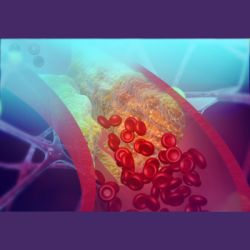The much sought after 'partnership' between doctors, patients and their families or caregivers- named patient and family-entered care (PFCC) requires the cooperation and inclusion of all stakeholders in all aspects of the medical and health care decision making process. In a report published in the Journal of the American College of Radiology, ACR PFCC Committee presents the Communication Curriculum for Radiology Residents they developed, as well as a description of the research behind it and how radiology residency program directors can effectively implement it.
According to the study, the curriculum is based on three main premises:
- embracing dignity and respect for individual patient and family values, culture, and beliefs
- transparently sharing information to more effectively include patients and their families in their medical care
- cultivating the collaboration between care providers and patients in healthcare delivery, research, facility design, and professional education
You may also like: Radiology efficiency: from burnout to wellbeing
In reference to professional education, after the Institute of Medicine’s report Crossing the Quality Chasm: A New Health System for the 21st Century in 2001, the ACGME introduced six core competencies to better shape the training and development of medical professionals, one of which focuses on 'soft-skills'(interpersonal and communication skills). Communicating clearly and effectively with patients their families and their care providers is the most important element in achieving to provide the highest quality of care.
In 2012, developmental milestones were established to facilitate programs on what specific skills should be taught during residency related to the effective communication with patients and their families, and the extended health care team. In radiology, these skills may progress from relaying accurate information for simple cases to communicating more complex and complicated results attributed to medical errors, unexpected or negative outcomes, or just bad news. The interpersonal and communication skills milestones additionally establish specific expectations for verbal and written communication necessary for radiologists practice. There is no standardised comprehensive curriculum in place to deal with these issues, and often residency and fellowship programs struggle with determining the best way to both teach and evaluate these essential skills.
The ACR recently introduced Imaging 3.0, a program that guides practices on how to better transition from volume-based to value-based care. Communication skills is considered as a critical component, while the idea that quality communication with the patient may possibly be reimbursable in the future under value-based care. The effective implementation of a value-based care system, requires effective communication skills not just as an altruistic personality trait of a radiologist but a legitimate factor that affects their financial compensation.
By understanding the need to ensure that graduates coming into the workforce are appropriately equipped to add value to healthcare systems, the ACR formed the PFCC Committee, to developing a curriculum and set of resources to fill this need. The committee proceeded to select those resources that had either been validated or proposed to be “best practices.”
The material identified various specialties that successfully implemented PFCC principles during residency training. Starting in 2009 when the ACGME held a design conference to brainstorm ideas about integrating PFCC into residency training, internists and family practitioners proved that sitting at the bedside while talking to patients and touching patients during conversation at the bedside lead to improving patient engagement in their care.
Other references showed that strong patient-centred communication results in better outcomes for paediatric patients and those in intensive care units. More recently, Rawson and Moretz explained how to effectively think about PFCC in the context of radiology practice, and Lang et al incorporated microteaching into residency training as a tool to help enhance residents’ communication skills.
Based on the data, the Committee selected a set of validated experiential resources that may be adapted to diverse practice settings, to help provide training programs with tools to cultivate strong communication skills upon completion of residency. These tools should rely on both simulated reflective exercises in the classroom, experiential learning through simulation using actor or other trained professionals to portray a patient in a simulated environment, or videos, and learning from live patients in the clinical setting.
All of these approaches have been effective in teaching the necessary communication skills and promote continual growth and improvement.
The library of validated resources for program directors to use to implement a curriculum to address the ACGME milestones on interpersonal and communication skills is now available on the ACR website. The report notes that these ACGME milestones are currently under revision, thus the name of this milestone may need to be updated in the future to reflect any changes.
Image credit: iStock
References:
Latest Articles
Radiology, Patients, Healthcare, American College of Radiology, communication skills, 42nd Annual Scientific Meeting of Society of Interventional Radiology, residency training
The much sought after 'partnership' between doctors, patients and their families or caregivers- named patient and family-entered care (PFCC) requires the cooperation and inclusion of all stakeholders in all aspects of the medical and health care decision



























